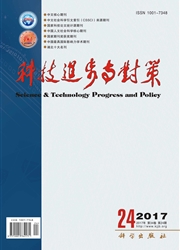

 中文摘要:
中文摘要:
在假定项目型组织平等合作的基础上,运用委托-代理理论和博弈论,纳入总承包商给予专业分包商基于监控信号的奖惩结构,构建了基于监控信号的项目导向型供应链跨组织合作激励模型,并与传统激励模型进行比较,通过数据模拟与模型算例,研究了监控信号对激励契约设计的影响。研究表明:通过引入监控信号,总承包商可以收集到更多有关专业分包商行为选择的信息,通过调整对专业分包商的奖励和惩罚力度,可以促进专业分包商采取合作行为,降低其机会主义行为,也可以降低总承包商对专业分包商激励的盲目性。
 英文摘要:
英文摘要:
Assuming project-based organizations cooperate equally,this paper used principal-agent theory and game theory, to empower the general contractor to give reward and punishment to the professional sub-contractor based on a monitoring signal and constructed a model of inter-organizational cooperative innovation of project-based supply based on a monitoring signal. Based on the model, by data simulation and example analysis, as well as comparison with a traditional model, we came to the conclusion that the general contractor, through monitoring signals, is able to collect more information on the professional sub-contractor's behavior choice. Thus by adjusting the reward and punishment level,it can not only lower the professional sub-contractor's non-cooperative behavior level, but can also raise the cooperative behavior level, all of which will reduce the professional sub-contractor's opportunism and the blindness the general contractor may be alleviated in the design motivation mechanism.
 同期刊论文项目
同期刊论文项目
 同项目期刊论文
同项目期刊论文
 期刊信息
期刊信息
